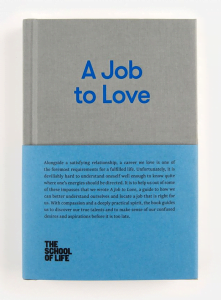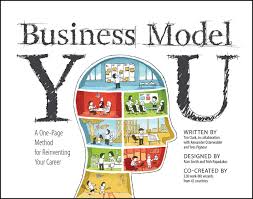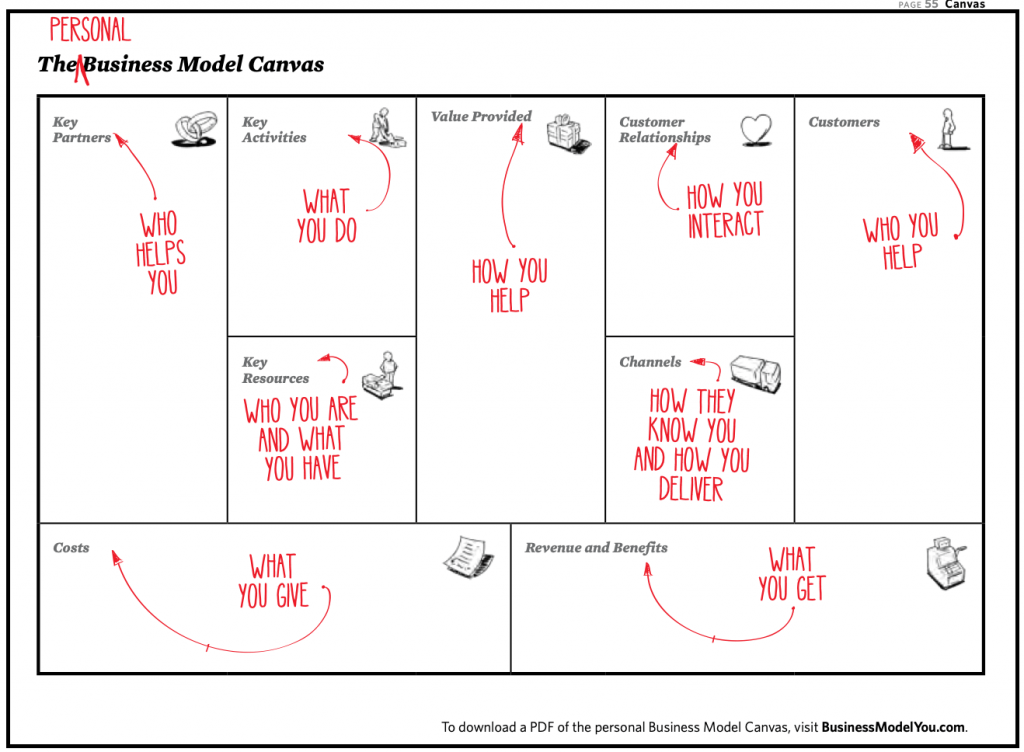The way we earn our living has not always been a subject of inner turmoil, fears, doubts, or hopes. Historically, it was not until the 15th century (Italian painters seem to have been among the first) that we began to wonder if the work we were doing produced a minimum of pleasure or personal fulfillment. Until then, people worked to survive, and it never occurred to anyone that things might be different. Work was simply a tool to achieving a goal and not an end in itself.
THE MYTH OF VOCATION OR INSPIRATION
Today, however, the perspective is radically different – the career or profession we choose must bring us material security but also feed our souls. The task of identifying with some precision what exactly will tick both needs is terribly difficult to begin with. On top of that, we also expect to have a pretty good idea which of all the possible professions will be the one that will suit us best. “What are you going to be when you grow up” is still one of the top questions that adults often torment children with. We might not always expect a coherent answer, but we do continue asking this question without any clue of how absurd it sounds— even when we, the adults, would have a hard time answering the same question.
In all the school years, we are supposed to prepare for future professions. However, we spend surprisingly little of that time trying to understand WHAT would suit us best. Even if we do recognize that choosing one profession out of a multitude of possibilities is an extremely important and difficult endeavor, we manage to convince ourselves that there is no way of “teaching” such a thing at school. We are naively confident that we will somehow find the answer ourselves. This is how we end up making choices that are almost accidental but for which we are quick at finding justifications. We choose to study mathematics because we get bored reading Sadoveanu’s novels, because our parents tell us that there is good money to be earned in IT or because we have no intention of becoming teachers (what else can you do with foreign languages, right?).
Okay, I get the idea, how do we fix it? We can find a few answers in two books that offer directions for us to investigate the potential, inclinations, and internal resources for each of us.

ALAIN DE BOTTON – A JOB TO LOVE
The first recommendation comes from Alain Botton and his project „The School of Life”. Titled A Job to Love, the book aims to guide readers through a process of self-knowledge to identify their own talents but also to better understand their preferences and desires. With a fine and slightly ironic sense of humor, the author touches on topics such as the myth of vocation, self-confidence and the imposter syndrome, the trap of perfectionism, and much more.
Botton identifies, for example, three main obstacles that prevent us from identifying which career or profession would best suit us: 1) lack of skills, 2) lack of information about possible opportunities, and 3) lack of a coherent personal goal. If we become better at overcoming the first obstacle, the other two continue to raise issues. The absence of a clear goal remains one of the most difficult to overcome—if we do not know what we want, how will we know where to look?
However, the author does not raise questions without also proposing solutions. One of the things he recommends is going back to childhood, the time when we spend all our time on things that brought us joy. That is because it allows us to explore activities that can still be a source of pleasure. Another idea is to turn our attention, for investigative and constructive purposes, to those we envy. We obviously would like to be in their sshoes and, if we understand why, we can find clues about our own desires.
The inner voices that sometimes unconsciously influence us can also be an obstacle. Often, they do not belong to us at all but are “inherited” from our families. It’s possible that the voice that constantly whispers to us “don’t do this, it’s too risky” or “you have never been very good at calculations” is actually what a parent or a teacher us to say to us when we were children. If we understand that these voices do not belong to us, we will no longer feel compelled to listen to them.
EXPANDING OUR PROFESSIONAL HORIZON
The book also offers a list of activities that could bring us pleasure. If some of us get satisfaction from constantly inventing new ways to produce income (and see in their success a reward for intelligence and effort), others look for activities that test their creativity or their desire to express themselves. The ability to teach others, the need for order or independence, the pleasure of connecting with nature or exploring the opportunities created by technology can also produce satisfaction.
The author also believes it is essential to differentiate between what brings us pleasure and fulfillment and what we consider to be the final “product” of some jobs. A mistake many of us make is to despise career opportunities that do not seem to suit our interests. In other words, a young person interested in finance can reject the media industry form the start, ignoring that even in this industry there is a stringent need to reduce costs and efficiently manage financial resources. Similarly, shipping may seem unattractive at first glance. This is if we ignore the fact that it is a very complex field that involves elements such as international cooperation, long-term projects, political negotiations, complex legislative issues, organizing conferences and events, etc. When we think of it that way, the field seems to offer something for everyone.
These are just some of the useful tools that Alain de Botton’s book offers. You can also enjoy the author’s delicious style and sense of humor in another one of his books— The Pleasures and Sorrows of Work.

TIM CLARK – BUSINESS MODEL YOU
The book is addressed both to those at the beginning of their professional life but also to those looking for new directions. The logic of the authors is relatively simple and starts from the idea that any business is based on a plan – at least those who end up enjoying some success. Every business plan contains a series of elements necessary for it to be able to be financially sustainable. These are: key resources and activities, products or services, customers, the value offered to them, the channels through which customers access the products, key partners, costs, etc.
The same elements can become components of a career plan. For example, the key resources are our knowledge and skills, the personality and assets we possess. Key activities— what we actually do when we work, physical or mental activities—are based on the resources we have. Our clients are our supervisors or the colleagues we work with on joint projects. If we work on our own, the clients are the ones who directly benefit from our services and who pay for them. The book covers all the elements in detail and proposes a series of techniques to help us identify the starting points—our own interests, desires, and abilities. It is difficult to understand who our customers are and how to identify channels to reach them if we do not know what we want to offer them. The basic idea is that, if we look at our own careers as businesses, we can better control the elements that can bring us success.

EXPLORING PERSONAL VALUES
Some useful and easy to use techniques such as the Wheel of Life or Lifeline Discovery are explained at length. The authors also detail the theory of the American psychologist John Holland, who, starting from the idea that work is a way of life and a way of expressing our personalities, identified six main personality tendencies: artistic, social, investigative, entrepreneurial, realistic, and conventional. Clearly, these trends influence both the directions we choose and the success we will have if we dedicate ourselves to them.
These are just some of the resources you can find in Business Model You. We also recommend the site with the same name—you can find worksheets, videos, and a community interested in developing a successful career.
If we’ve managed to spark your curiosity, enjoy exploring these two great books!
For those who are just starting out or interested in pursuing a new career in HR, we have created the “Professional Profile” articles series.

